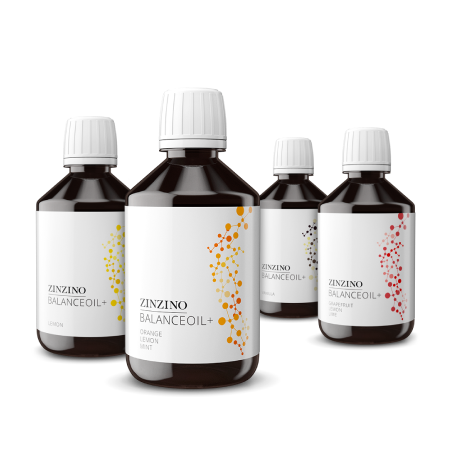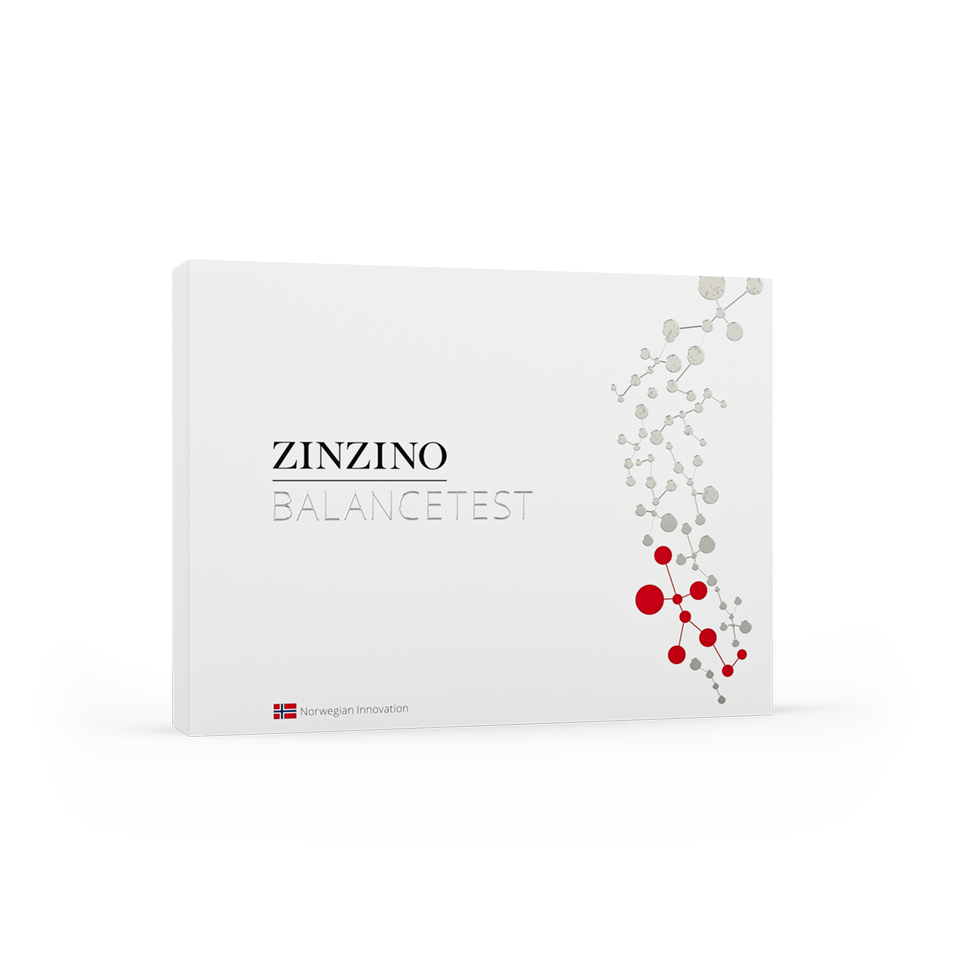Der gesundheitliche Nutzen eines Polyphenol Omega Balance Nahrungsergänzungsmittels

Nicht alle gesundheitlichen Probleme lassen sich über unsere Ernährung lösen. Aber was wir auf unsere Teller legen trägt doch erheblich dazu bei, dass und ob wir uns dauerhaft wohl fühlen. Dabei gibt es einen unglaublich wichtigen Nährstoff, der für unsere körperliche und geistige Gesundheit unerlässlich ist: Omega-3.
Ja, das ist diese essentielle Säure, die in einer ganzen Reihe von fettreichen Fischen vorkommt.
Unser Körper kann diese essentiellen Säuren nicht selbst herstellen, und die meisten Menschen nehmen sie nicht in ausreichender Menge zu sich. Aus diesem Grunde benötigen wir einen zweigleisigen Ansatz, der die Ernährung um Omega-3 und Polyphenole ergänzt.
Die Bedeutung der Omega-3-Fettsäuren EPA & DHA.
Bei der Europäischen Behörde für Lebensmittelsicherheit (EFSA) gibt es eine Liste, der die anerkannten gesundheitsbezogenen Angaben zu Omega-3-Fettsäuren, Vitamin D und Olivenöl zu entnehmen sind. DHA und EPA sind zwei wichtige Arten von Omega-3-Fettsäuren, und beide sind Bestandteil von BalanceOil+.
DHA trägt bei einer Tagesdosis von 250 mg zur Aufrechterhaltung einer normalen Hirnfunktion bei1 und wirkt unterstützend auf die normale Funktion der Augen2. Bei einer täglichen Einnahme von 250 mg helfen EPA und DHA auch, die Herzfunktion im normalen Bereich zu halten3. Für einen normalen Blutdruck benötigen Sie 3 g pro Tag4, und 2 g wirken sich positiv auf den Triglyceridspiegel aus5.
Bei werdenden Müttern wirken sich 450 mg DHA pro Tag vorteilhaft auf eine normale Hirnentwicklung ihres Fötus aus (dies trifft übrigens auch bei Säuglingen zu, die gestillt werden)1, und 100 mg pro Tag können im ersten Lebensjahr zu einer normalen Entwicklung der Augen beitragen2.
Von der Gesundheit des Herz-Kreislaufsystems über kognitive Funktionen bis hin zur Funktion der Augen und einer gesunden Entwicklung des Fötus im Mutterleib – Omega-3-Fettsäuren sind schlichtweg für alle Altersklassen essentiell.
Für unser BalanceOil+ verwenden wir Omega-3-Fettsäuren (EPA und DHA) aus wildlebenden Sardinen, Anchovis und Makrelen von höchster Qualität. Die Fischöle bleiben dabei unverarbeitet. Sie werden lediglich einem Reinigungsverfahren unterzogen, das bei allen Fischölen zum Einsatz kommt.
Polyphenole + Omega-3-Fettsäuren.
Olivenöle mit einem hohen Polyphenolanteil helfen dem Körper bei der Aufnahme von Omega-3-Fettsäuren. Darüber hinaus sind die Polyphenole des Olivenöls aber auch noch potente Antioxidantien, die für die Gesundheit in vielfacher Hinsicht förderlich sind. So schützen sie die Blutfette beispielsweise vor oxidativem Stress6.
Dabei ist es wichtig, ein Produkt zu wählen, das aus kaltgepresstem, extra nativem Olivenöl besteht. Wir arbeiten mit der Olivensorte Picual, die einen höheren Gehalt an Polyphenolen aufweist, und ernten sehr frühzeitig, um die Menge an Polyphenolen optimal auszuschöpfen. Dank schonender, extra nativer Pressung entsteht so ein perfektes Öl, dessen Inhaltsstoffe unversehrt bleiben.
Die Wissenschaftler von Zinzino haben die Formel für das BalanceOil+ so gestaltet, dass das Omega-3 mit der richtigen Menge an Olivenöl kombiniert wird, was wiederum Omega-9 und große Mengen an Antioxidantien liefert.
Diese Kombination aus Omega-3 und Polyphenolen macht es möglich, das Omega-3 im Körper auf sichere Art und Weise zu regulieren und hinsichtlich der Balance zwischen Omega-6 und Omega-3 in 120 Tagen den Idealwert von 3:1 oder ein noch geringeres Verhältnis zu erreichen.
Die Vitamin-D-Komponente.
Neben all dem gesundheitlichen Nutzen der Omega-3-Fettsäuren unterstützt das BalanceOil mit seinem Vitamin-D-Anteil auch die normale Funktion des Immunsystems7, die Funktion der Muskeln8, die Knochenstruktur9, die Zellteilung10 und den Kalziumspiegel im Blut11. Wir verwenden dafür ein natürliches Vitamin D aus Lanolin – einem Fett, das in der Wolle von Schafen vorkommt. Wird es durch die Einstrahlung von UV-Licht aktiviert, kommt es zu einem Prozess, der sich mit dem vergleichen lässt, was in unserer Haut geschieht, wenn sie unter dem Einfluss von Sonnenlicht Vitamin D produziert.
Das BalanceOil+ kommt der natürlichen Substanz so nahe, wie es nur möglich ist. Es ist eine Premium-Mischung aus natürlichen, unverfälschten Ölen, die Ihnen helfen, Ihren Körper ins Gleichgewicht zu bringen und Ihrer Gesundheit von Kopf bis Fuß etwas Gutes zu tun. Ein Produkt, das seinesgleichen sucht.
Der Fang des Tages.
Fahren Sie zweigleisig: Achten Sie auf eine gesunde Ernährung und nutzen Sie ein Nahrungsergänzungsmittel mit Omega-3 und Polyphenolen, um den Omega-3-Spiegel in Ihrem Körper auf einem optimalen Niveau zu halten. Empfehlenswert ist eine Kombination aus mediterraner Ernährung mit möglichst wenig verarbeiteten Lebensmitteln und dem BalanceOil+, um sich dem Verhältnis der Fettsäuren dem Optimalwert von 3:1 anzunähern.
Um herauszufinden, wie Ihr aktueller Stand ist, empfiehlt es sich zunächst, den Balance Test von Zinzino zu machen und dann Balance-Produkte zu verwenden, um das Verhältnis innerhalb von 120 Tagen zu optimieren.
Es ist noch nie so einfach gewesen, die Welt wieder ins Gleichgewicht zu bringen.
* Diese Aussagen sind nicht von der amerikanischen Food and Drug Administration geprüft worden. Dieses Produkt ist nicht dazu geeignet, eine Erkrankung zu diagnostizieren, zu behandeln, zu heilen oder zu verhindern.
1. DHA contributes to the maintenance of normal brain
DHA contributes to the maintenance of normal brain function. The claim may be used only for food which contains at least 40 mg of DHA per 100 g and per 100 kcal. In order to bear the claim, information shall be given to the consumer that the beneficial effect is obtained with a daily intake of 250 mg of DHA. Docosahexaenoic acid (DHA) maternal intake contributes to the normal brain development of the fetus and breastfed infants. Information shall be given to pregnant and lactating women that the beneficial effect is obtained with a daily intake of 200 mg of DHA in addition to the recommended daily intake of Omega-3 fatty acids for adults, i.e. 250 mg DHA and EPA. The claim may be used only for food which provides a daily intake of at least 200 mg DHA.
2. DHA contributes to the maintenance of normal vision
DHA contributes to the maintenance of normal vision. The claim may be used only for food which contains at least 40 mg of DHA per 100 g and per 100 kcal. In order to bear the claim, information shall be given to the consumer that the beneficial effect is obtained with a daily intake of 250 mg of DHA. Docosahexaenoic acid (DHA) intake contributes to the normal visual development of infants up to 12 months of age. Information shall be given to the consumer that the beneficial effect is obtained with a daily intake of 100 mg of DHA. When the claim is used on follow-on formula, the food shall contain at least 0.3% of the total fatty acids as DHA.
3. DHA and EPA contribute to the normal function of the heart
DHA and EPA contribute to the normal function of the heart. The claim may be used only for food which is at least a source of EPA and DHA as referred to in the claim SOURCE OF Omega-3 FATTY ACIDS as listed in the Annex to Regulation (EC) No 1924/2006. In order to bear the claim, information shall be given to the consumer that the beneficial effect is obtained with a daily intake of 250 mg of EPA and DHA.
4. DHA and EPA contribute to the maintenance of normal blood
DHA and EPA contribute to the maintenance of normal blood triglyceride levels. The claim may be used only for food which provides a daily intake of 2 g of EPA and DHA. In order to bear the claim, information shall be given to the consumer that the beneficial effect is obtained with a daily intake of 2 g of EPA and DHA. When the claim is used on food supplements and/or fortified foods, infor- mation shall also be given to consumers not to exceed a supplemental daily intake of 5 g of EPA and DHA combined. DHA contributes to the maintenance of normal blood triglyceride levels. The claim may be used only for food which provides a daily intake of 2 g of DHA and which contains DHA in combination with eicosapentaenoic acid (EPA). In order to bear the claim, information shall be given to the consumer that the beneficial effect is obtained with a daily intake of 2 g of DHA. When the claim is used on food supplements and/or fortified foods, information shall also be given to consumers not to exceed a supplemental daily intake of 5 g of EPA and DHA combined.
5. DHA and EPA contribute to the maintenance of normal blood pressure
DHA and EPA contribute to the maintenance of normal blood pressure. The claim may be used only for food which provides a daily intake of 3 g of EPA and DHA. In order to bear the claim, information shall be given to the consumer that the beneficial effect is obtained with a daily intake of 3 g of EPA and DHA. When the claim is used on food supplements and/or fortified foods, information shall also be given to consumers not to exceed a supplemental daily intake of 5 g of EPA and DHA combined.
6. Olive oil polyphenols
Olive oil polyphenols contribute to the protection of blood lipids from oxidative stress. Replacing saturated fats in the diet with unsaturated fats contributes to the maintenance of normal blood cholesterol levels. Oleic acid is an unsaturated fat. The claim may be used only for olive oil which contains at least 5 mg of hydroxytyrosol and its derivatives (e.g. oleuropein complex and tyrosol) per 20 g of olive oil. In order to bear the claim, information shall be given to the consumer that the beneficial effect is obtained with a daily intake of 20 g of olive oil.



Diese Seite teilen
Oder Link kopieren